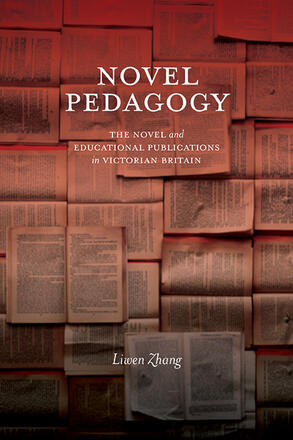
Novel Pedagogy
The Novel and Educational Publications in Victorian Britain
Explores Victorian writers’ conception of the novel’s potential to become serious knowledge and differentiate itself from other educational genres.
Description
Is the novel a category of knowledge that merits serious study? Even if the novel has shed the stigma of being mindless entertainment, one might easily assume that reading a novel is not "studying," unless one reads closely and carefully, preferably from a scholarly edition or for a scholarly purpose. Novel Pedagogy explores how Victorian writers envisioned the novel's potential to become knowledge long before the form’s ascendence into the ivory tower. Liwen Zhang argues that Victorian novelists' constant critique of schooling, on the one hand, and their frequent invocation of deep knowledge, on the other, are not self-contradictory. Instead of offering a blissful escape from education, writers such as William Thackeray, Charles Kingsley, Charles Dickens, Elizabeth Gaskell, George Eliot, and George Gissing seek to offer uniquely novelistic pathways to knowledge. Novel Pedagogy offers a new model of novelistic epistemology by showing how the novel, unlike other educational genres, reflects on the unpleasant realities of learning—and of not learning—amid the ubiquity of ineffective textbooks, reluctant students, and false motivations.
Liwen Zhang is tenure-track Lecturer in English Literature at Beijing Foreign Studies University.
Reviews
"Vibrantly smart, deeply researched, and enormously edifying, Novel Pedagogy effectively balances two aims: first, to trace a history of the novel as a history of the genre's institutionalization in relation to education and pedagogy; and second, to use that history as a ground for the development of nuanced and original close readings of several canonical Victorian novelists. Zhang shows that these novels are not passively swept up into historical and cultural trends, but rather use the novel itself to participate actively in debates about education, useful knowledge, young minds, moralism and didacticism, lessons in craft, and more. Lucid and approachable, this book will be read with enthusiasm and appreciation by scholars of Victorian studies and historians of the novel, reading, education, and pedagogy." — Daniel Wright, author of The Grounds of the Novel